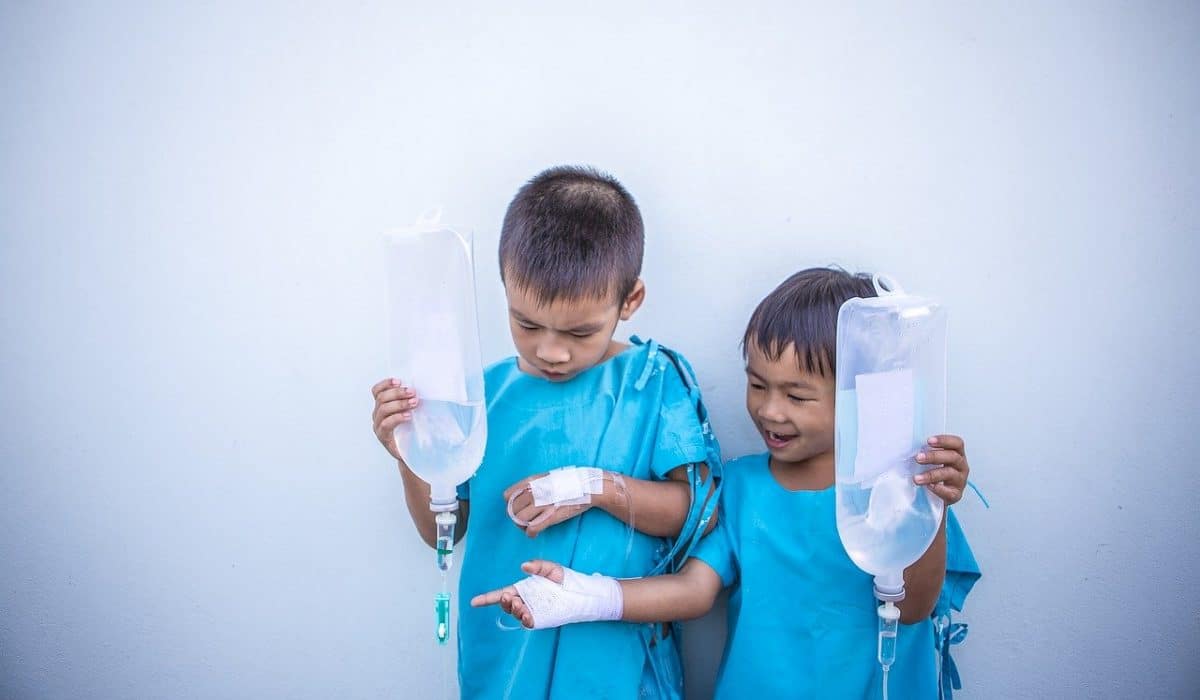
The antibiotics are drugs widely used in bacterial infections, in bacterial ones. They do not work against viruses. It is important that we are clear about these differences, and we will understand why specialists do not always prescribe them, although as mothers it may seem the most appropriate. We should never medicate our children ourselves, unless we are professionals, the damage can be serious.
The antibiotics also have side effects, like many other medications, and it is convenient that we know them and give the alarm to the pediatrician in the event that they occur.
Antibiotic abuse in children

You've surely heard that abuse antibiotics generate effects on the own gut of the child. It causes the internal balance of these beneficial bacteria to break down and whose peculiarity is that it is unique for each person. To avoid this, and if your son or daughter must take many antibiotics, consult your pediatrician about the use of natural probiotics.
It is frequent that the child ends up having resistance to the antibiotic he uses most often. This implies that when faced with a new infection, as the common antibiotic fails, the doctor is forced to prescribe a more powerful one, with greater adverse effects.
It is essential that you give your children the amount, and the specific time, that the pediatrician has recommended. From the Andalusian Association of Primary Care Pediatrics, it recommends, at most, to use them two or three times a year, because their misuse generates bacterial resistance. Children have a longer prognosis for life than adults and antibiotics are more dangerous for them.
Side Effects of Antibiotics in Children

El upset stomach is one of the side effects common that occurs with the abuse of antibiotics. The boy or girl may lose their appetite, have nausea, vomiting, diarrhea. Hence, it is recommended, in the case of amoxicillin and doxycycline, to be given at the same time as food, but this advice does not work for all antibiotics. Ask your doctor about the use of probiotics in these cases. If the diarrhea is severe, with abdominal pain, cramps, fever, nausea, and the presence of mucus or blood in the stool, then see your doctor.
Fever is also common when the child is taking antibiotics. Sometimes we attribute it to the bacterial process itself, but this is not always the case. It can be caused by an allergic reaction. Fever usually occurs with the use of minocycline, sulfonamides, beta-lactams, and cephalexin, If it is very high, or is accompanied by a skin rash or difficulty breathing, call a doctor.
When the child, or baby takes antibiotics, it is possible that they become more sensitive to light, in the most severe cases they can get sunburns. Tetracycline is one of the antibiotics that usually causes photosensitivity, This usually disappears when the child finishes the treatment.
Diaper Rash from Abusing Antibiotics

We make a section to treat diaper rash, as it is the most common side effect in babies. This dermatitis will cause the baby's skin to become red, scaly, and sore.. Discomfort and dryness may remain even after treatment is finished.
It is best to change the child more often, use cotton diapers, or even if time permits not to put on a diaper. Gently clean the area with mild soap and water, don't use scented soaps and pat the area dry with a very soft towel. There are creams with zinc oxide that relieve symptoms. There are babies who can have the dermatitis not only in the diaper area, but in the joints and even the mouth.
When your pediatrician prescribes antibiotics for your child, we recommend that you comment if you have had side effects, or how long it has been from your previous treatment, for you to keep in mind. If you want to expand this information, we recommend this article.